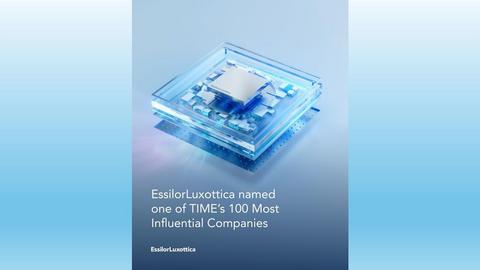Publications
FOCUS 73: Leveraging Entrepreneurship To Harness New Technology

Quentin Vaquette, Managing Director of ENGIE Factory Asia-Pacific shares how AI and entrepreneurship play parallel roles in energy innovation.
Hi Quentin, please give us an overview of Engie Factory's work in Singapore and the region.
ENGIE Factory is the venture capital arm of the ENGIE Group in Asia-Pacific. We are based in Singapore and cover Southeast Asia and Australia. Our goal is to accelerate the zero carbon energy transition and we do this by (i) building new companies from scratch through a fine-tuned venture building process and by (ii) piloting existing startup solutions with the aim to establishing partnerships to scale. We developed the idea for ENGIE Factory in 2018, designed our program, hired our team and setup shop in Singapore at the start of 2019. In less than 18 months, we have validated and incorporated five (5) new startups, have two (2) more startups in the pipeline ready for investment this year. In addition, we have also piloted more than 12 startup solutions in Singapore and Australia and started scaling some of them through our businesses in the region. It has been quite a busy 18 months, to say the least.
Our investment thesis is quite unique. We find that cleantech as a venture capital investment segment is often misunderstood. Often it is seen as a deeptech-only sector, heavy in science, emerging technologies and R&D. Whereas this was indeed the case for most of the past 20 years, most of the key technologies required to significantly reduce the world’s carbon emissions are available, have matured and are economically attractive. Renewable energy such as solar and wind in cheaper that fossil-fuel based energy in many cases, the decrease in cost of high capacity batteries has led to explosion in electric vehicles and energy efficiency has been become recognized as a market potential well in excess of 100bn USD globally. The interesting question is why these technologies are not being deployed more rapidly everywhere and our answer to that question is that the problem lies in the existing contractual structures, business models and incentives in place today. Lack of financing and government incentives or support are often named but we believe that in general that is not the key problem and all the key ingredients are here to make the transition happen.
The core to solving these problems lies in business model innovation, much like what we have seen happening over the past 15 years with the rise of internet businesses making the life of consumers and businesses more convenient, not through advanced technology, but by using the web and mobile technology to solve for existing problems with new business models. The new energy technology layer is mature and I forecast that the next decade in energy innovation will be mostly around business model innovation much in the same as we have seen this happen on the internet with pretty much every service imaginable moving online, which itself was made possible with the underlying internet technology layer have become mature in the early 2000’s.
How does Engie Factory help startups and founders to scale up solutions?
We always start from problems and opportunities that we identify through ENGIE’s global and regional presence in the market. Our ENGIE employees talk to customers and engage with partners on a daily basis and they get to understand what is hindering sustainable projects to materialize. Based on this intelligence, we select those problems and opportunities that are scalable, have a regional or global potential and can be solved through business model innovation.
Once the problem or pain point is clear, we look for startups regionally and globally that have already solved the problem. If we find them, we will try to setup a pilot with them and explore how we could work together by leveraging our global presence across 70 countries and access to customers and their innovative approach to accelerating the energy transition. Often, we find that no company has adequately solved the problem and we then decide to build an entirely new startup from scratch by bringing in entrepreneurial talent and working with them through a rigorous three-months venture validation process that culminates in the setup of a new company with seed investment by us and support create an impactful and scalable business.
What are the key areas in which AI can drive global sustainability?
In the zero carbon energy transition, we see AI as a key technology layer in enabling more deployment of energy efficiency and renewable energy but also in increasing resource utilization and reducing the carbon footprint of companies, whilst providing them operating cost savings. One example of a company that we built at ENGIE Factory, together with Co-Founder and CEO Bolong Chew, is SolarAi. They built advanced satellite image analytics and data classification algorithms that allow identifying the best locations for development solar projects. This helps building owners and portfolio real estate owners to maximize the value of their building by maximizing onsite energy production.
Another interesting example of a company that we built at ENGIE Factory, together with Co-Founder and CEO Jason Tang, is TablePointer. They developed an Internet Of Things (IOT) hardware technology layer that is combined with intelligent software running in the cloud and helps the F&B industry (restaurants, grocery stores, food chains and other outlet-based businesses) to generate energy savings in the range of up to 20%. This results in an immediate cost benefit and carbon footprint reduction for its customers.
The world of energy, buildings, transport and infrastructure is physical and will remain like that in the future. But as IOT grows and digitizes the physical by measuring and controlling, AI will increasingly turn to optimize those physical assets, much in the same way as we have seen this happen in the native digital space like book and search recommendations. The decade to come in sustainability will be an exciting one and I believe that entrepreneurship will play a pivotal role in creating the next generation of highly valued companies.

Interview with Quentin Vaquette, Managing Director of ENGIE Factory Asia-Pacific, for FOCUS #73. To read more articles from this issue, download your digital copy here


